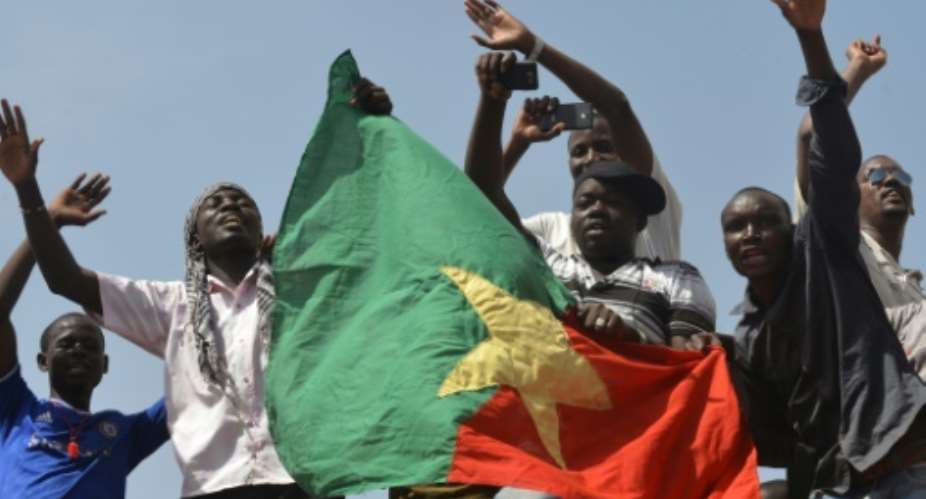Abuja (AFP) - Seven political parties from Burkina Faso went to a regional court on Tuesday to challenge a recent change to the country's electoral law barring those linked to deposed leader Blaise Compaore from running for office.
The parties, which include the former ruling Congress for Democracy and Progress, and 13 individuals brought the case to an Abuja-based court that deals with complaints of rights violations in the 15 member countries of the Economic Community Of West African States (ECOWAS).
The court said Tuesday it would rule on the complaint on July 13 -- a decision that will be legally-binding to Burkina Faso, which belongs to the regional grouping.
Burkina Faso's interim parliament voted for the amended electoral bill in April, rendering ineligible for the October 11 presidential and legislative polls those who had publicly backed the former leader's efforts to change the constitution to extend his 27-year rule.
Compaore's bid sparked violent mass protests that forced him to resign in October 2014, prompting the military and an interim government to take control of the landlocked west African nation of about 17 million people.
"This amendment, this modification was purposely done to exclude a large majority of the population... Our submission is that this amendment violates the right of the citizens," the plaintiffs' lawyer Moussa Coulibaly told the court.
Describing the amendment as a "witch hunt", Coulibaly said it violated the ECOWAS Treaty and the African Charter on Human and Peoples' Rights.
Meanwhile lawyer Mamadou Savadogo, for the government in Ouagadougou, told the court the plaintiffs had not given any "concrete proof" that the amended law affected their human rights.
"The electoral law of 7th April, 2015 does not prevent anybody's right to vote. It only excludes people that participated in an anti-constitutional act from contesting an election," he said.





 Minority will expose the beneficial owners of SML, recover funds paid to company...
Minority will expose the beneficial owners of SML, recover funds paid to company...
 Prof. Opoku-Agyemang has ‘decapitated’ the NPP’s strategies; don’t take them ser...
Prof. Opoku-Agyemang has ‘decapitated’ the NPP’s strategies; don’t take them ser...
 Abubakar Tahiru: Ghanaian environmental activist sets world record by hugging 1,...
Abubakar Tahiru: Ghanaian environmental activist sets world record by hugging 1,...
 Prof. Naana Opoku-Agyemang will serve you with dignity, courage, and integrity a...
Prof. Naana Opoku-Agyemang will serve you with dignity, courage, and integrity a...
 Rectify salary anomalies to reduce tension and possible strike action in public ...
Rectify salary anomalies to reduce tension and possible strike action in public ...
 Stop all projects and fix ‘dumsor’ — Professor Charles Marfo to Akufo-Addo
Stop all projects and fix ‘dumsor’ — Professor Charles Marfo to Akufo-Addo
 Blue and white painted schools will attract dirt shortly – Kofi Asare
Blue and white painted schools will attract dirt shortly – Kofi Asare
 I endorse cost-sharing for free SHS, we should prioritise to know who can pay - ...
I endorse cost-sharing for free SHS, we should prioritise to know who can pay - ...
 See the four arsonists who petrol-bombed Labone-based CMG
See the four arsonists who petrol-bombed Labone-based CMG
 Mahama coming back because Akufo-Addo has failed, he hasn't performed more than ...
Mahama coming back because Akufo-Addo has failed, he hasn't performed more than ...
